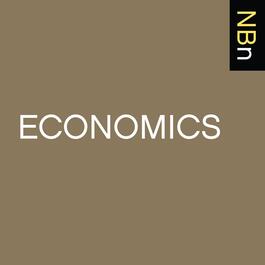
New Books in Economics
Interviews with Economists about their New Books Support our show by becoming a premium member! https://newbooksnetwork.supportingcast.fm/economics
Show episodes

Paul Vigna, "The Almightier: How Money Became God, Greed Became Virtue, and Debt Became Sin" (St. Martin's Press, 2025)
The pursuit of wealth is considered an essential function of human nature, and greed is an unspoken civic virtue. Many of us revere billionaires and Wall Street rain-makers, then complain about “the system” being rigged, and wonder why the country doesn’t seem to work for the little guy anymore. Some blame the Deep Sta

Mark R. Rank, "Poorly Understood: What America Gets Wrong about Poverty" (Oxford UP, 2021)
Few topics have as many myths, stereotypes, and misperceptions surrounding them as that of poverty in America. The poor have been badly misunderstood since the beginnings of the country, with the rhetoric only ratcheting up in recent times. Our current era of fake news, alternative facts, and media partisanship has led

Christopher Marquis and Kunyuan Qiao, "Mao and Markets: The Communist Roots of Chinese Enterprise" (Yale UP, 2022)
Mao and Markets: The Communist Roots of Chinese Enterprise (Yale University Press, 2022) by Dr. Christopher Marquis & Dr. Kunyuan Qiao presents a thoroughly researched assessment of how China’s economic success continues to be shaped by the communist ideology of Chairman Mao It was long assumed that as China embraced o

David Engerman, "Apostles of Development: Six Economists and the World They Made" (Oxford UP and Penguin RandomHouse South Asia, 2025)
Apostles of Development: Six Economists and the World They Made (Oxford University Press and Penguin RandomHouse South Asia, 2025) by Dr. David Engerman recounts the work of six individuals, all former classmates at Cambridge University, who helped make international development--the effort to reduce poverty and inequa

Aditi Sahasrabuddhe, "Bankers' Trust: How Social Relations Avert Global Financial Collapse" (Cornell UP, 2025)
Central bank cooperation during global financial crises has been anything but consistent. While some crises are arrested with extensive cooperation, others are left to spiral. Going beyond explanations based on state power, interests, or resources, in Bankers' Trust: How Social Relations Avert Global Financial Collapse

Elizabeth Popp Berman, "Thinking like an Economist: How Efficiency Replaced Equality in U.S. Public Policy" (Princeton UP, 2022)
For decades, Democratic politicians have frustrated progressives by tinkering around the margins of policy while shying away from truly ambitious change. What happened to bold political vision on the left, and what shrunk the very horizons of possibility? In Thinking like an Economist, Elizabeth Popp Berman tells the s





